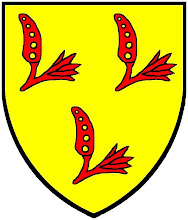OK, technically DelanceyPlace isn't a blog; it's an article-a-day email service.
From their site: Delanceyplace is a brief daily email with an excerpt or quote we view as interesting or noteworthy, offered with commentary to provide context. There is no theme, except that most excerpts will come from a non-fiction work, mainly works of history, and we hope will have a more universal relevance than simply the subject of the book from which they came.
Today's entry is on the rise of Protestantism in colonial America, and how it contributed to the Revolution. I've added footnotes [thus].
Quote begins after the break.
Although "taxation without representation" was the ostensible cause of the Revolution, it was deeply felt resentment from Presbyterians, Baptists and others against this heavy-handed Anglicanism that provided the Revolution with much of its urgency and emotional weight, and preachers throughout America railed against King George, the head of the Anglican Church, as the "Great Satan"[1]:
[1] Now where have I heard that phrase before... Ironic, no?
"Around the time of his marriage, [Virginian John Clay] received 'the call.' Eventually he became the Baptists' chief apostle in Hanover County, working to change attitudes that were not necessarily irreligious but did find the Church of England emotionally unsatisfying and spiritually moribund. After the Great Awakening [which began in the 1730s] swept its revivalist fervor across the country, Virginians found the mandatory nature of Anglican worship - dissenters could be fined and even imprisoned - infuriating, and a simmering discontent over the lack of religious freedom helped stoke dissatisfaction with other aspects of British rule.
"Presbyterians became the dominant denomination in literate areas as converts in the Tidewater and Piedmont were matched by Scots-Irish migrations from Pennsylvania into the Shenandoah Valley. In the region between - Henrico, Chesterfield, and Hanover counties - the less literate gravitated to the Baptists[2], whose services were long on emotion and short on complicated liturgical teachings.[3]
[2] Sounds about right.
[3] No, seriously: it's still true today (said snarklessly, this time). Baptist churches are notoriously anti-intellectual, anti-secularist, and anti-science. Not all of them, to be sure, but I'd be surprised if there weren't more creationist Baptists than creationist Presbyterians (or Methodists or Catholics).
"Because of this, the number of Baptists markedly increased in the 1760s and 1770s, particularly among lower-class whites and slaves. Preachers could be unschooled and were always uncompensated, at least by any hierarchical authority. They came to their pulpits after an extraordinary religious experience referred to as 'the call.'
"After John Clay received the call, he organized churches in Henrico and Hanover counties, including a large congregation at Winn's Church in 1776. Most of his flock comprised a sect known as New Light Baptists, not exactly economic levelers but noted for simple attire and the practice of calling each other 'sister' and 'brother' regardless of social rank or economic status. They were clearly more democratic than class-conscious Anglicans, and congregations even allowed slaves to participate in worship services. [!] That eccentric practice alone caused Anglican planter elites anxiety over the influence of Baptists, a troubling, troublesome lot who made even Presbyterians look respectable.
"Baptists took such contempt as a badge of honor.[4] They and the Presbyterians grew increasingly angry about the power of establishment Anglicans, in particular evidenced by onerous taxes and reflexive persecution. At least once John Clay himself felt the weight of Anglican anger when he was jailed for his dissent. Such experiences, though, fueled rather than suppressed enthusiasm for religious liberty. As protests over British taxes became more strident, calls for spiritual freedom matched them. The drive for independence gained momentum, and the calls for disestablishing [5] the Church of England became more vocal."
[4] As well they should.
[5] See disestablishmentarianism, "probably the longest useful word in the English language."
__
It's a superb email service, and you really should subscribe. Daily entries are about a page long.
Wednesday, June 2, 2010
Subscribe to:
Post Comments (Atom)


No comments:
Post a Comment